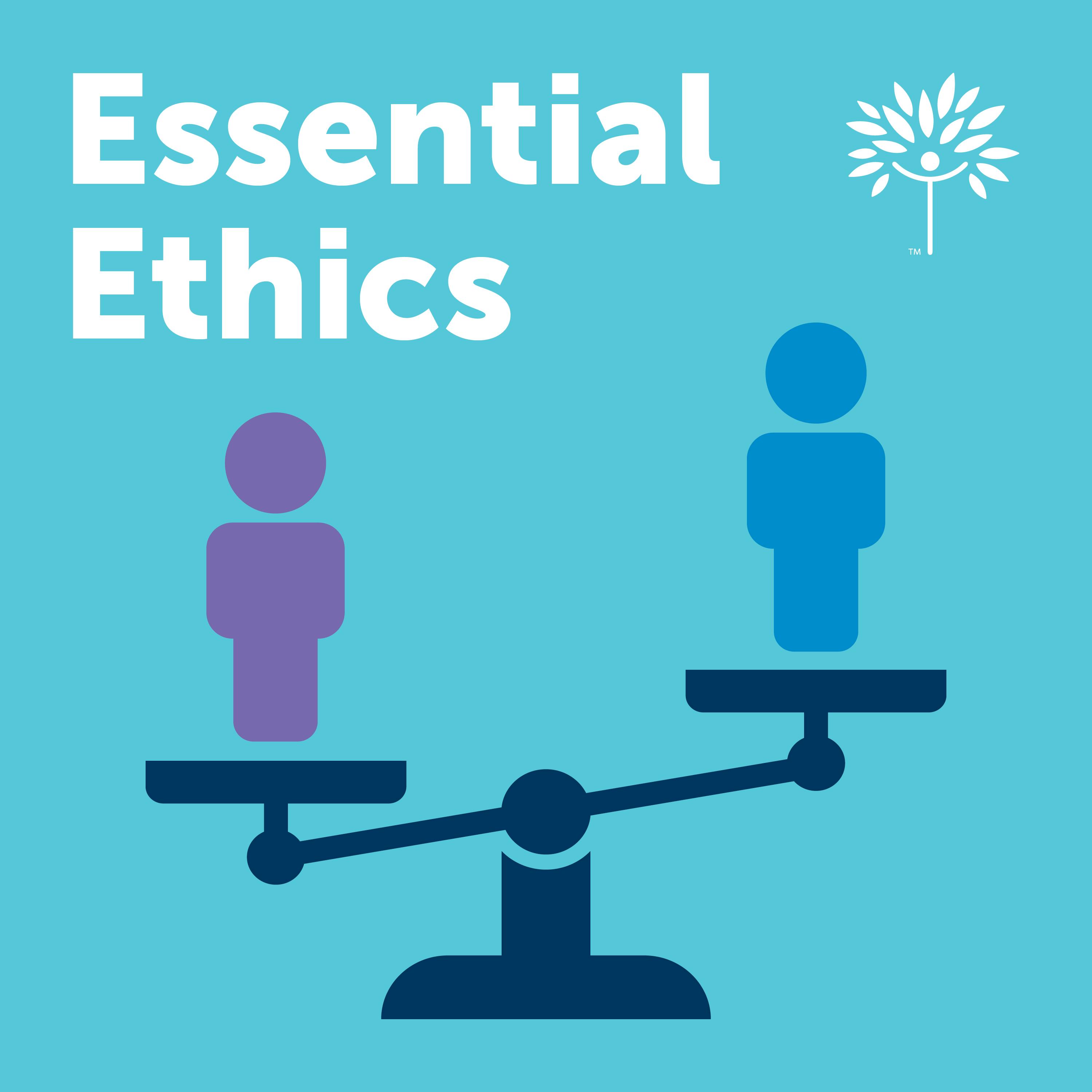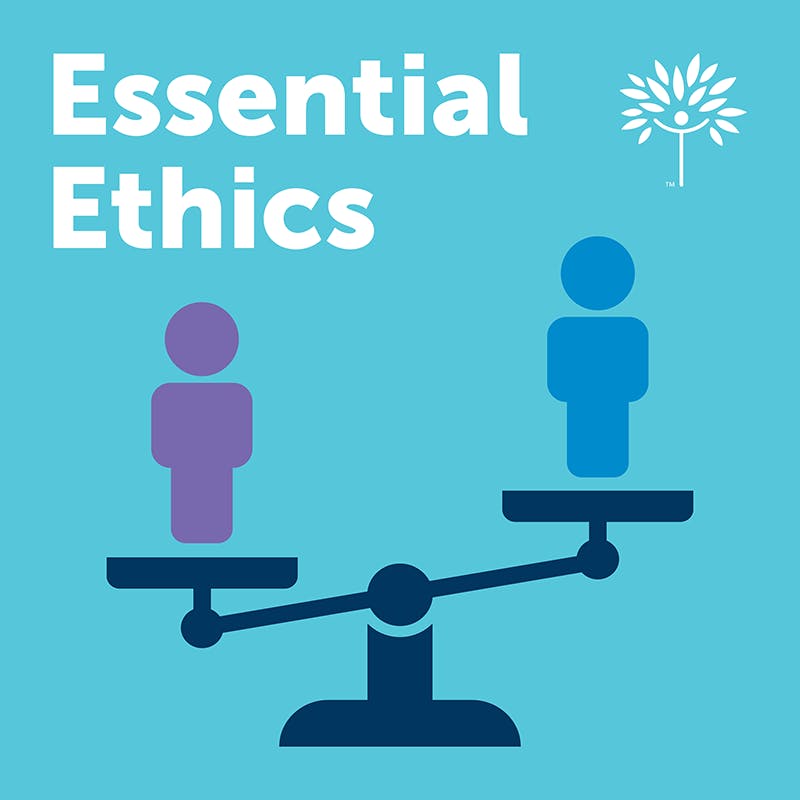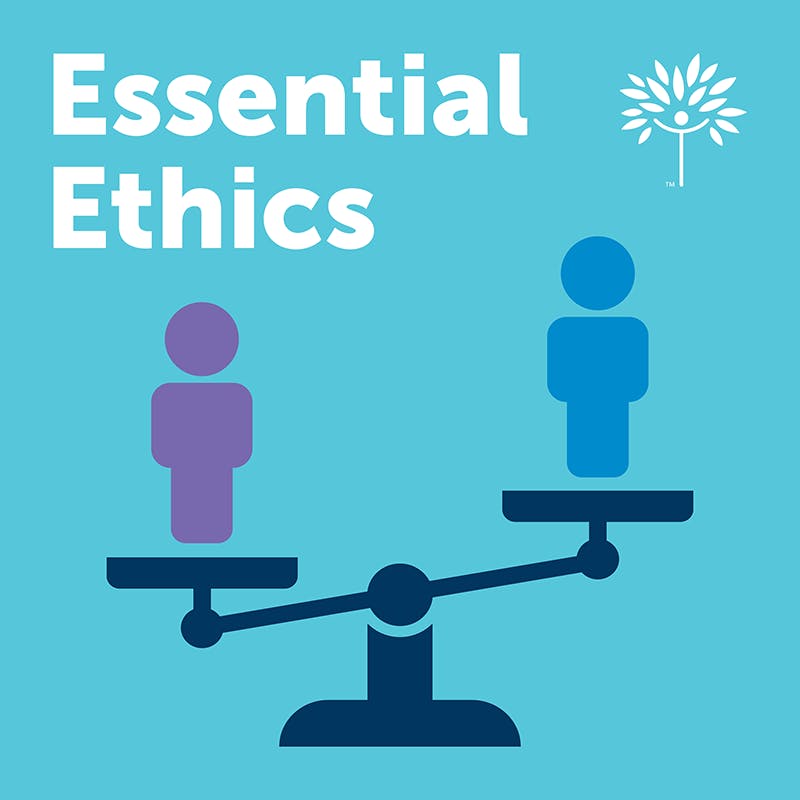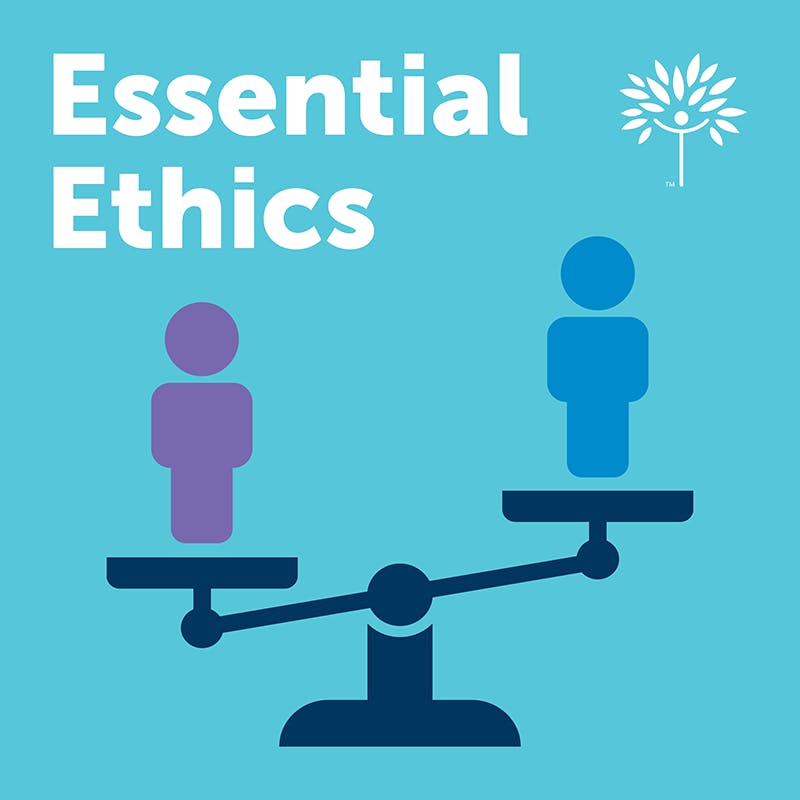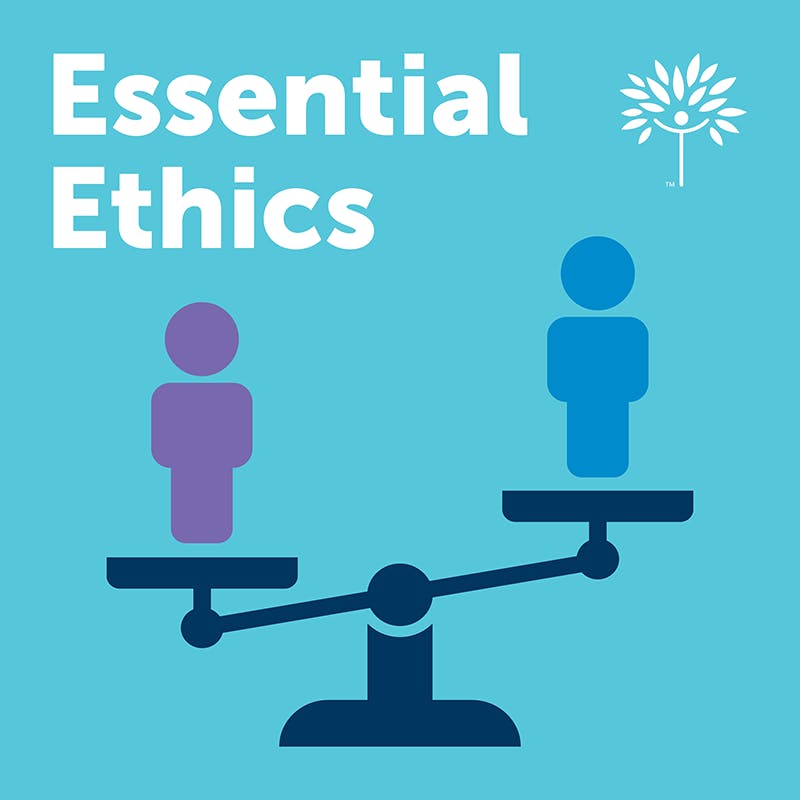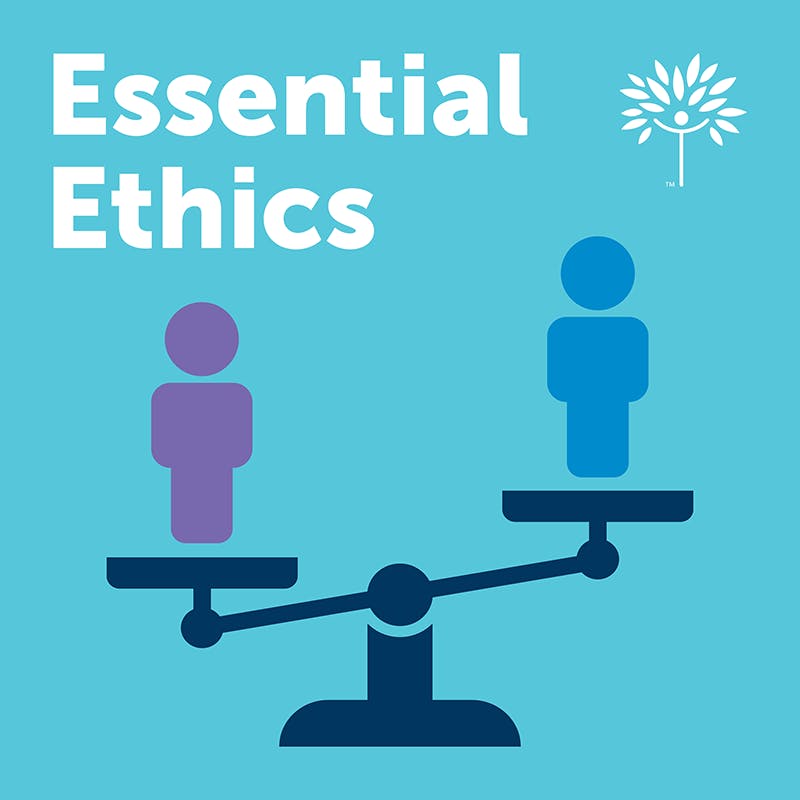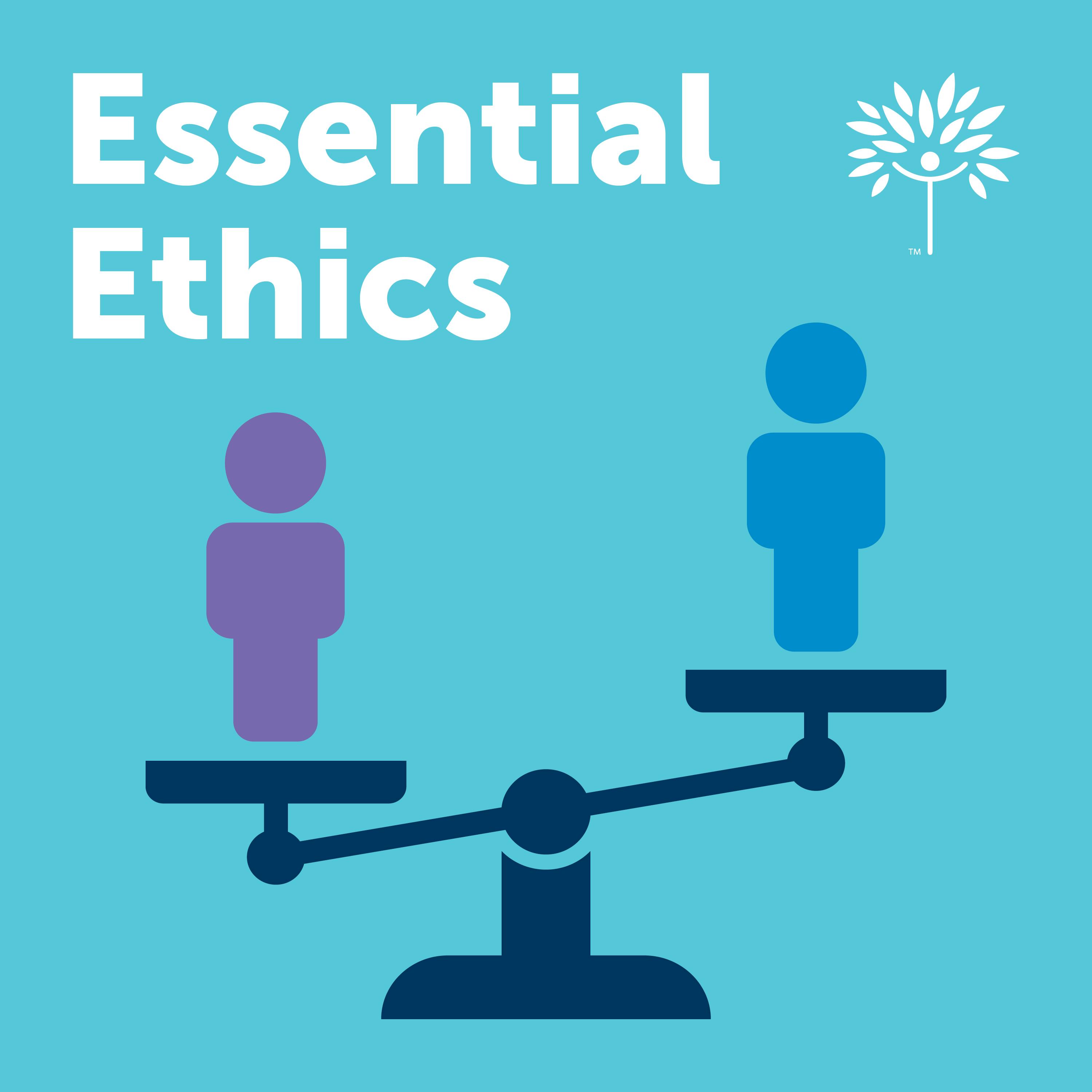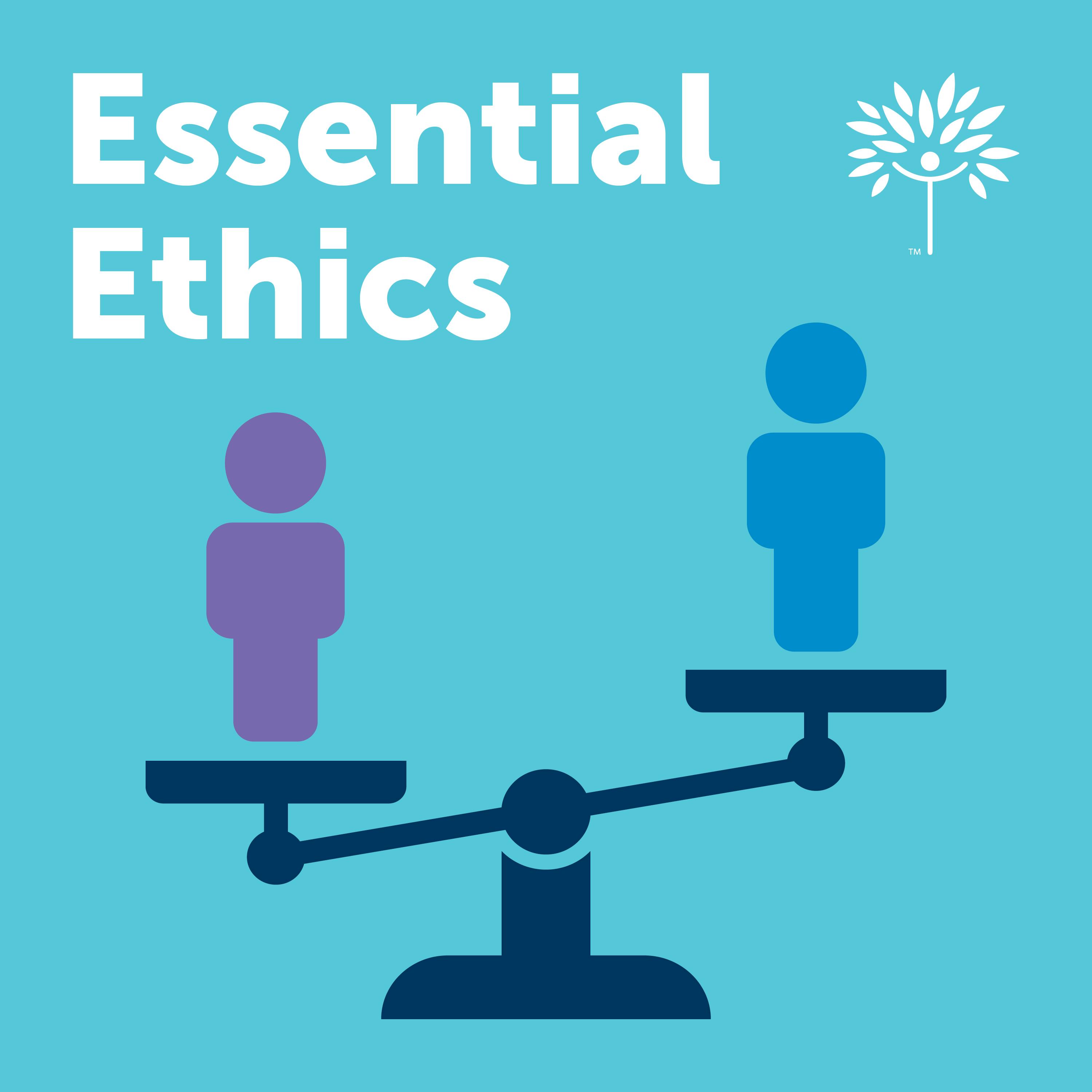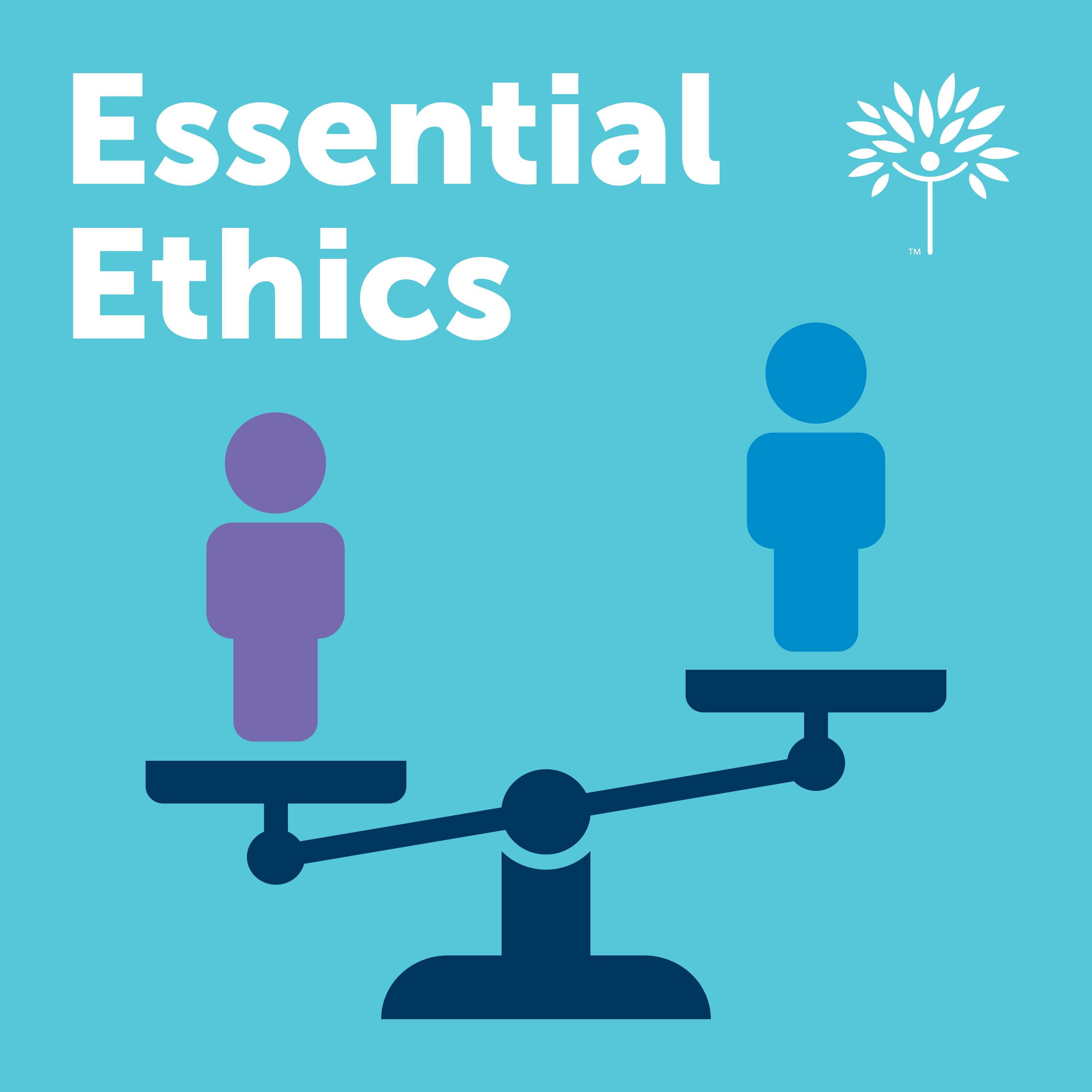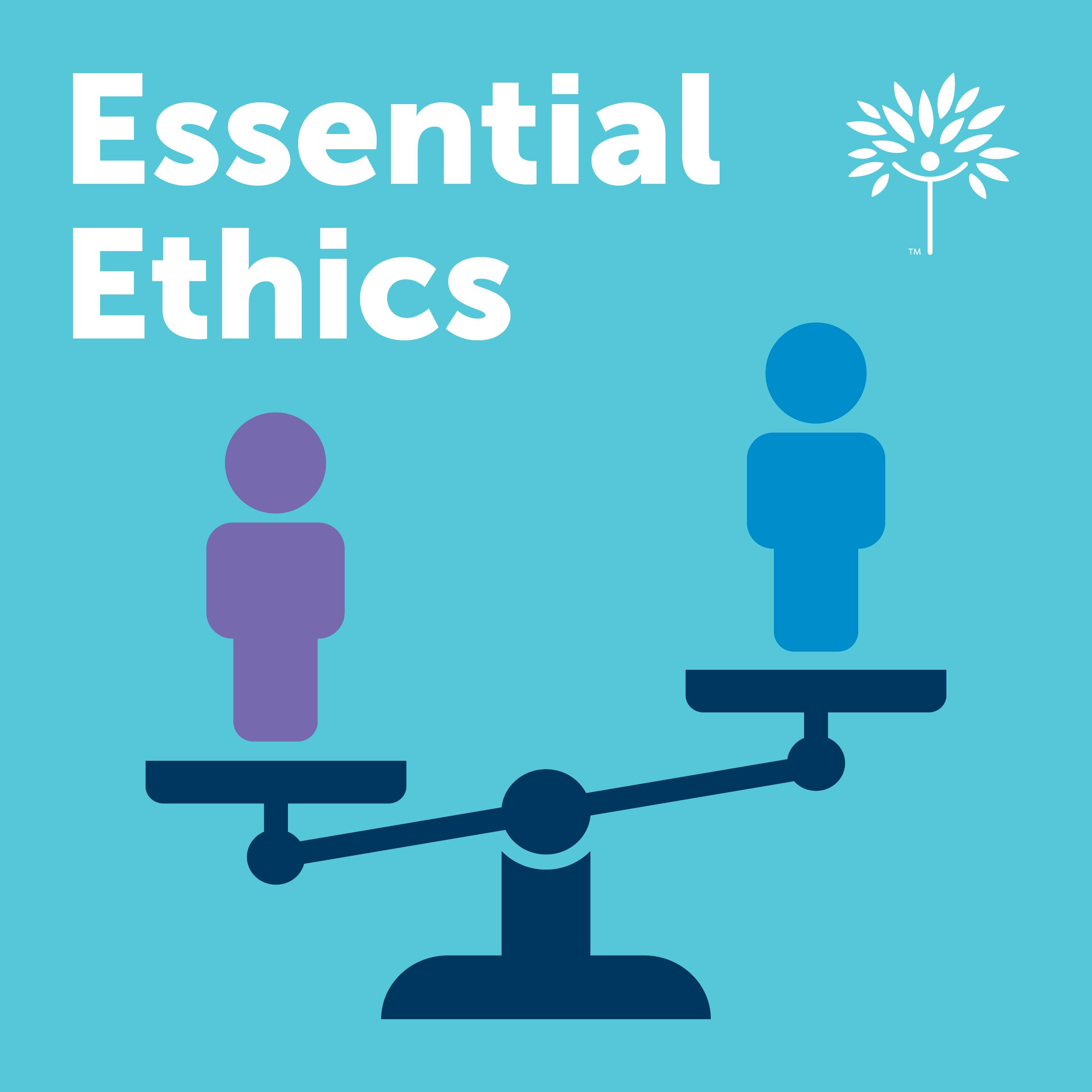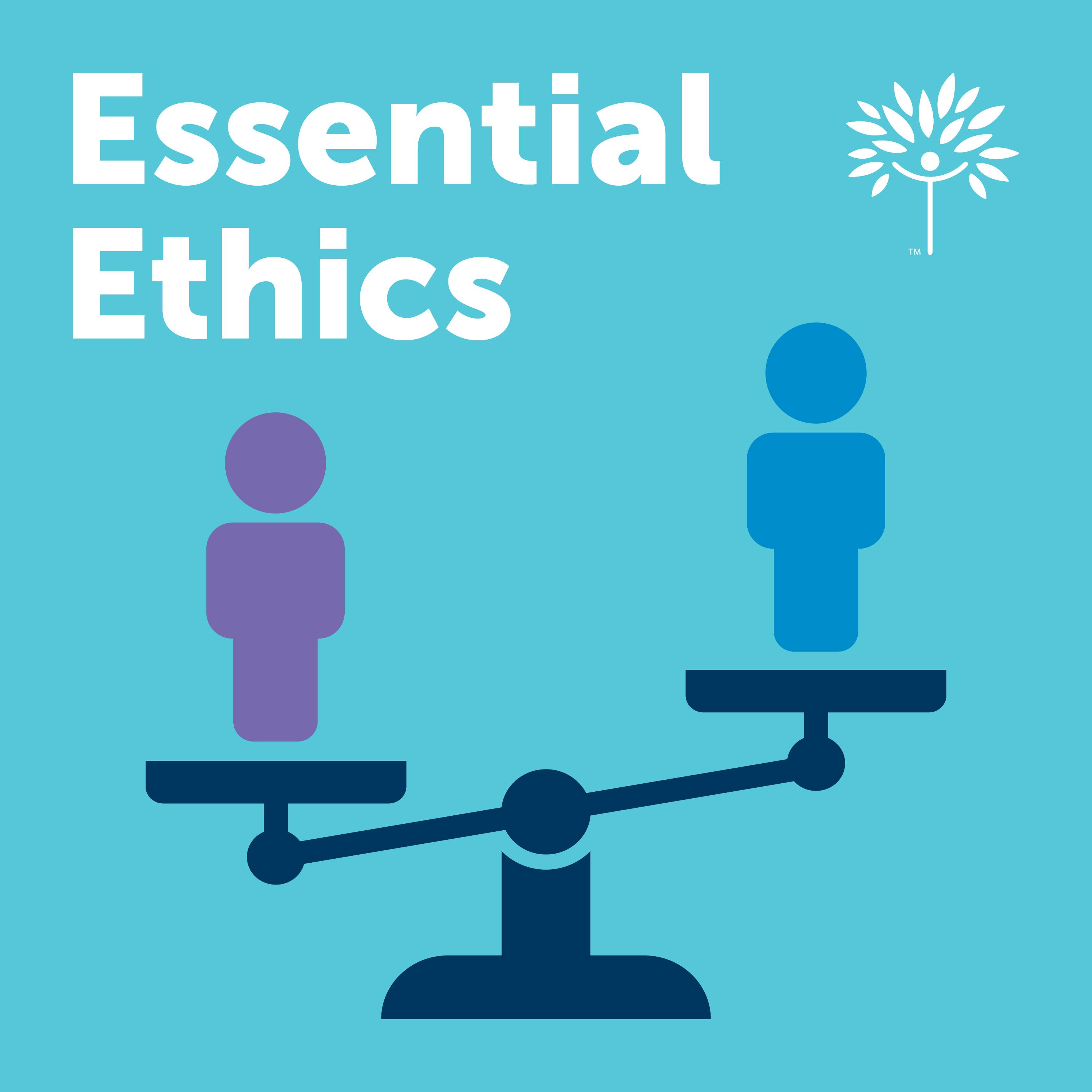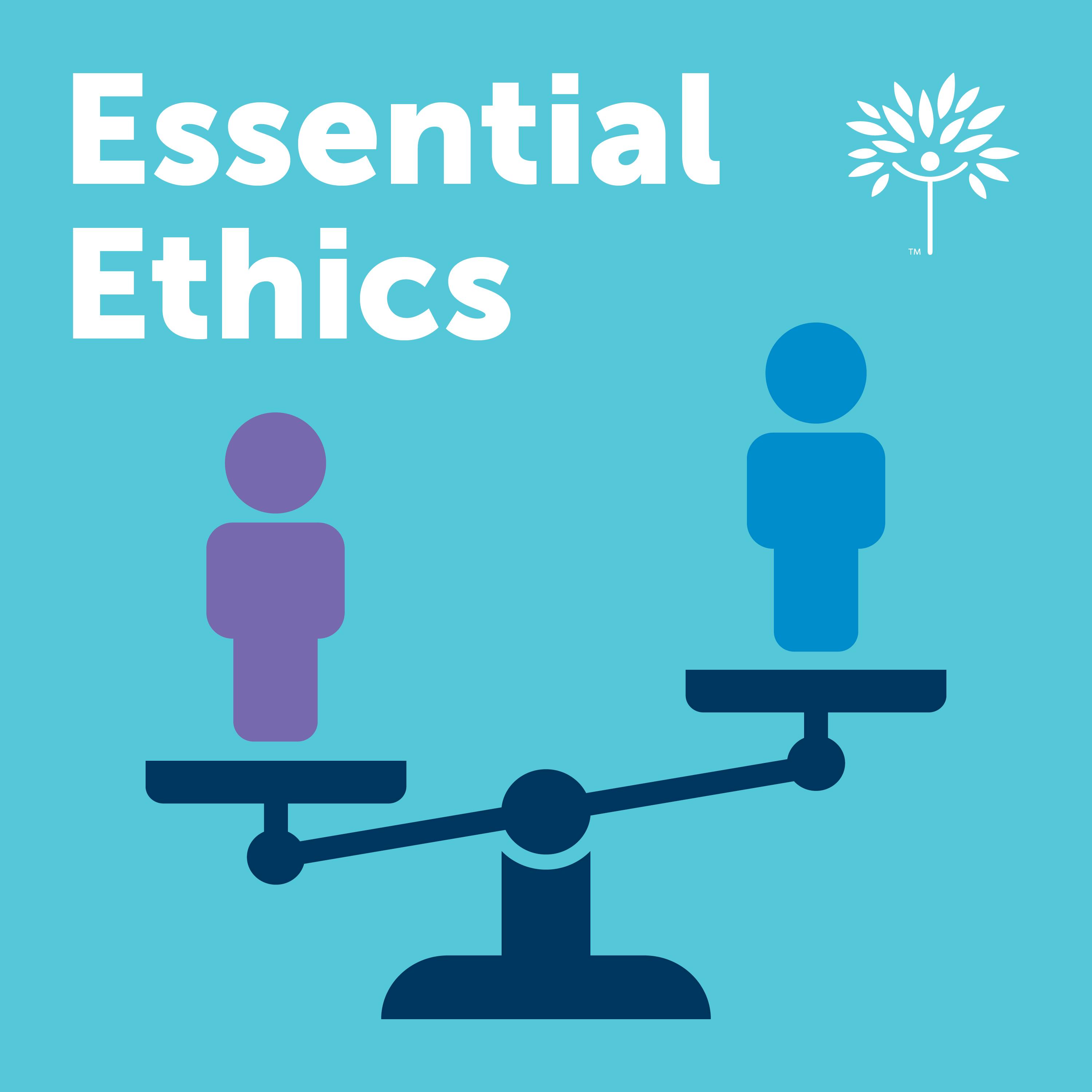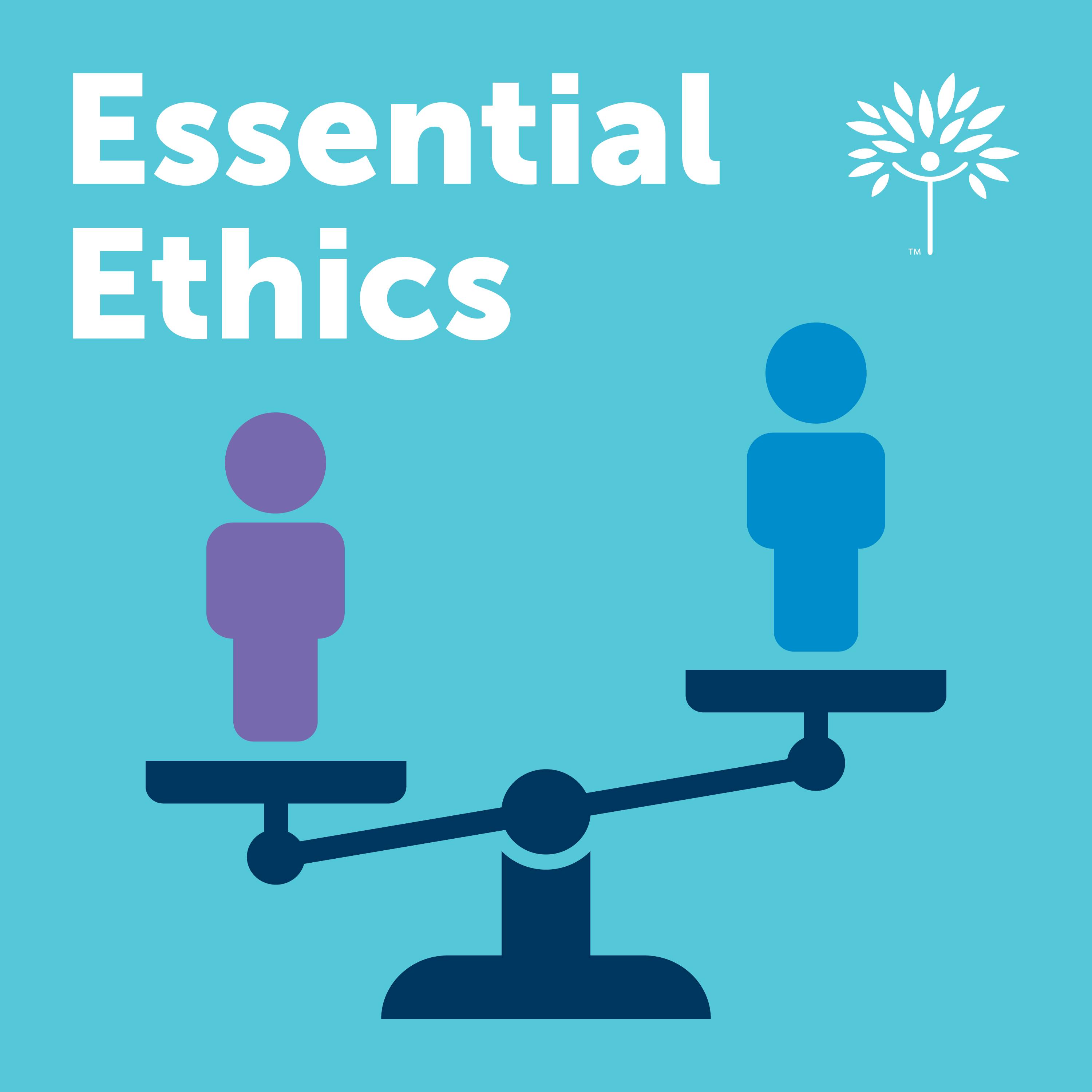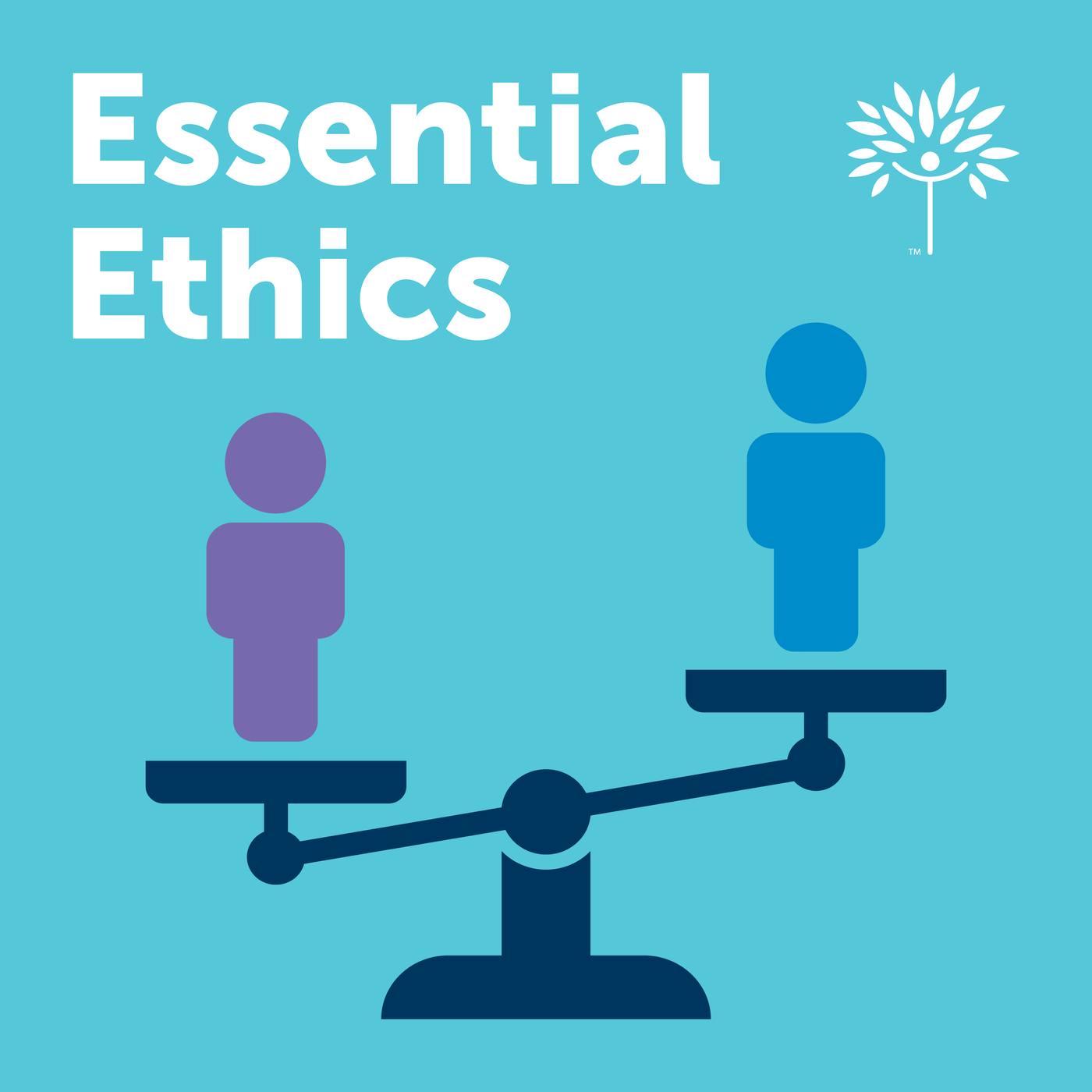Discover Essential Ethics
Essential Ethics

Essential Ethics
Author: The Royal Children's Hospital, Melbourne
Subscribed: 44Played: 519Subscribe
Share
© Copyright The Royal Children’s Hospital, Melbourne, Australia
Description
Essential Ethics, from the Children’s Bioethics Centre at The Royal Children’s Hospital (Melbourne, Australia) presents discussion of challenging cases that come up when treating children. Hear the most up-to-date thinking and draw knowledge from the ethics toolkit. After a decade or more of experience our team of world-recognised ethicists takes on the hardest cases. Essential Ethics is informative, interesting and always relevant. Hosted by Professor John Massie, a clinician and bioethicist at The Royal Children’s Hospital, Melbourne.
57 Episodes
Reverse
Parent-clinician conflict is a common reason that clinical ethicists become involved in children’s care. The genesis of the conflict is often quite early in the course of the child’s illness and the situation builds to a crisis when there is a difficult decision to be made. Clinicians and ethicists have a traditional way of considering the problem confronting the child. In this podcast Bry Moore and Ros McDougall offer a different lens through which to see the problem and, ideally, find a fresh way to consider the conflict and manage a path to resolution. Guests: Associate Professor Bryanna Moore, Dept of Bioethics & Health Humanities, University of Texas Medical Branch, USA, and Associate Professor Rosalind McDougall, Health Ethics at the Melbourne School of Population and Global Health, University of Melbourne. Host: Professor John Massie, Children's Bioethics Centre, The Royal Children's Hospital Melbourne.
A hypothetical case discussion sponsored by the Friends of the Children's Bioethics Centre Auxiliary. "Nadia" is a 15-year-old girl with cystic fibrosis who needs a permanent intravenous infusion device to facilitate her treatment. Her parents, of Indian heritage, are unwilling to agree to this. They are planning a family gathering and arranged marriage for Nadia and the infusion device will interfere with their plans. A panel of experts from the CBC, Profs Lynn Gillam, Clare Delany and Dr Georgina Hall, supported by a virtual panel from the RCH Clinical Ethics Response Group, wrestle with the case, which is full of ethical ‘heat’ and cultural sensitivities.
Jack Southwell, a Social Worker at RCH, describes the moral environment when looking after a child left in the care of the hospital. He discusses the technical differences between abandonment and relinquishment but posits that there is no real difference for staff. The child left in hospital care poses ethical concerns for the child, the staff, the parents and, importantly, the relationship between them all. Jack examines the moral and psychological toll this relationship poses for staff. This presentation won the Patron's Prize for the best presentation at the 2022 conference. The session is hosted by RCH Children's Bioethics Centre Clinical Nurse Consultant, Dr Jenny O’Neill.
An expert panel explores the issues that arise when young people request vaccination for COVID-19 against the wishes of their parents. Dr Veronica Cerrati presents a case of a 14-year-old girl with type-1 diabetes requesting a COVID vaccine from her GP. Associate Prof Margie Danchin explains the medical benefits and risks and clinical approach she would take with a young person in this situation. Prof John Tobin explains how this sits within a human rights framework, drawing on the UN Convention on the Rights of the Child. Prof Paula O’Brien considers the legal aspects, including Gillick competence and the varying laws and policies in the different jurisdictions of Australia. It is far from a straightforward picture, but in the end, a decision by the GP has to be made. Session chair: Prof John Massie, Clinical Director, Children's Bioethics Centre, RCH.
Haematopoietic stem cell (HSC) transplantation has become the standard treatment for a range of diseases in children and adults. Children, sometimes as young as six months of age may be asked to act as HSC donors, usually for their siblings. This is because siblings are most likely to be an ‘HLA match’. In this episode we explore the ethical issues when clinical teams and parents ask for children to be bone-marrow or peripheral blood stem cell donors for a sick sibling. Host: Prof John Massie, RCH. Guest: A/Prof Michael Marks, RCH senior paediatrician and donor advocate. Ethicist: Sharon Feldman, clinical ethicist, Children’s Bioethics Centre, RCH.
Professor Jodi Halpern introduces the audience to empathic curiosity, a concept that she has developed through her work in psychiatry, paediatrics and clinical ethics. Prof Halpern explains how sympathy may come naturally to many clinicians but is often an unhelpful response to difficulties that patients and parents of sick children face. What is needed is an empathic response that engages the patient and parent and supports the medical decisions that need to be made. Prof Halpern offers a series of steps to operationalise empathic curiosity and build a therapeutic alliance, even if there has been disagreement. Host: Prof John Massie, Clinical Director, Children's Bioethics Centre, The Royal Children's Hospital, Melbourne. Presenter: Prof Jodi Halpern MD, PhD, Chancellor’s Chair and Professor of Bioethics at UC Berkeley.
In the clinical care of children who have a disability, the processes of deciding with children can present different challenges. Children who have a disability may have limited ability to understand the decision to be made or difficulties communicating their preferences. In this episode, paediatrician Dr Giuliana Antolovich reorientates us to misunderstandings about disability which are often created by preconceived notions of what children with disabilities can do. She challenges us to centre the child in the consultation, listen carefully to their preferences and values, and include these in medical decisions that will affect the child. This approach is respectful to the child and opens a rich and surprising dialogue with them and their families. Host: Prof John Massie. Guest: Dr Giuliana Antolovich. Ethicist: A/Prof Ros McDougall.
Transition to adult services is an important step for patients who have been cared for in a children’s hospital or by a paediatrician. This is a process (transition) rather than an event (transfer) and takes both time and careful curation for the young person and their parents. The goal is to help develop the young person as an independent medical decision-maker at the same time as facilitating the parents’ role to switch from parent to patient advocate. There are many barriers to transition: willingness of the clinician to ‘let-go’; the patient's and parents' fears about a new environment and healthcare team; difficultly of the young person stepping-up into a role as independent decision-maker; difficulty of the parent ‘letting-go’ or shifting roles, and perhaps a poorly established medical service for young people with complex healthcare needs. Nevertheless, the process of transition needs to occur to promote the autonomy and best interests of the child and, in a call to justice, to make room for younger children who need paediatric services. Host: Prof John Massie. Guest: Evelyn Culnane, RCH Transition Service. Ethicist: Prof Clare Delany, Children’s Bioethics Centre, The Royal Children's Hospital, Melbourne, Australia.
In paediatric practice, decision-making for children gradually shifts from parents making all the decisions for their child, in collaboration with the child’s doctors, to the young person becoming more involved in their own decision-making. This shift, which is based on an emerging autonomy in the child, brings with it a concurrent need for parents and clinicians alike to step back and to listen to the child, as they develop capacity for holding views about their healthcare. The self-regarding nature of medical decisions generates a strong obligation for young people's views to be heard about what will be done to them. In this episode we explore the degree to which considering the views of the child on their medical treatment is a duty for clinicians, and how this obligation fits within the human rights discourse. Host: Prof John Massie. Guests: Prof David Archard & Prof John Tobin.
The legal system says that children generally don't have medical decision-making capacity. However, with increasing maturity comes a greater capacity to be involved. This is the basis for doctrines such as the ‘mature-minor’ and ‘Gillick competence’. By including and promoting a child early in their medical consultations, we can contribute to their growth towards independent decision making. However, there are circumstances when a young person’s capacity to make a medical decision isn’t clear. Factors may include intellectual ability, emotional maturity or the decision's complexity. In this episode, we explore these circumstances and ask: how is decisional capacity determined, and who is best placed to make that determination? If the young person wants to make a decision that is not in their best interests, how should we respond? Guests: Clinician: RCH Psychiatrist Dr Andrew Court. Ethicist: A/Prof Rosalind McDougall.
Practicing family centred care is considered best practice in paediatric clinical care, so why isn’t this widely adopted in paediatric research? The voices of experience include those of the children and families. Therefore, partnering with families in research should also be considered best practice. In this episode we explore this concept through an ethical lens – what are the benefits and challenges of engaging families in research? How do we honour the family experience? How do we ensure the important voices are heard? What do we need to be able to do this effectively?
Host: Dr Jenny O’Neill, Clinical Nurse Consultant Bioethics, The Royal Children’s Hospital. Guests: Ms Hollie Feller, parent advocate, co-founder and Director of Usherkids Australia, and Project Officer at Genetic Support Network Victoria. Associate Professor Adrienne Harvey, Senior Research Fellow, Neurodisability and Rehabilitation, The Murdoch Children’s Research Institute. Ms Marijana Vanevski, Infection Flagship Program Manager and Project Manager for the National Low-Risk Febrile Neutropenia Program, The Murdoch Children’s Research Institute.
Genomic sequencing in newborn screening is an ethical minefield. Newborn screening started in the 1960s, initially involving only one condition: phenylketonuria. Subsequently, other diseases were added to newborn screening programs. However, newborn screening panels have evolved without true consensus of the most suitable diseases to include. Advances in genomic sequencing technologies mean that it’s now possible to test for thousands of diseases from a single newborn blood spot. But just because this technology is available, does that mean we should use it?
Advocacy in healthcare is commonly characterised by ‘speaking-up’ on behalf of a patient and their family to ensure their preferences and values are considered and the best possible care is delivered. In nursing, advocacy is a professional and ethical responsibility. But what factors are at work when nurses feel the need to advocate? Are there limits to patient advocacy? Is the primary responsibility to represent patient/family wishes even when a nurse believes this is not the best clinical option? Are we advocating for what the patient/family wants or what the patient/family needs? Host: Prof John Massie, Children’s Bioethics Centre, RCH. Guests: Prof Lynn Gillam, Clinical Ethicist, RCH, Prof Fiona Newall, Director Nursing Research and Education, RCH, and Ms Eve Inglis, Unit Manager, Wallaby Ward, RCH.
In any paediatric hospital on any given day children are held in order to perform clinical procedures such as taking bloods or X-rays or putting in an intravenous line for fluids. This is done for the safety of all involved and to enable clinically necessary interventions to be undertaken. However, we know that holding children against their will can cause both short and long term harm. We discuss these competing ethical considerations and offer practical strategies to ensure that we approach paediatric procedures in an ethically mindful way. Host: Prof John Massie, Children’s Bioethics Centre, RCH. Guests: Dr Jenny O’Neill, Clinical Nurse Consultant, Bioethics, RCH, Ms Emily Cull, Clinical Nurse Consultant, Comfort Kids, RCH, and Ms Catherine Wood, Clinical Nurse Consultant, Complex Care.
Involving the family in the care of a child in hospital is a cornerstone of good paediatric practice. This is realised by encouraging parental presence and participation in care in hospital, and through open communication and shared decision making between clinicians, parents, and the child where appropriate. However, the community and hospital restrictions which came into force during the COVID-19 pandemic disrupted the usual practice of family-centred care. How did paediatric nurses navigate this? What ethical dilemmas resulted and how were these resolved or mitigated? Host: Prof John Massie, Clinical Bioethics Centre RCH. Guests: Ms Alie Barlow, Clinical Nurse Co-ordinator, Children’s Cancer Centre RCH, and Dr Jenny O’Neill, Clinical Nurse Consultant Bioethics, RCH.
Moral distress occurs when an ethical wrong is perceived to be occurring, or has occurred, which a clinician feels powerless to change. We discuss a hypothetical clinical case to explore the experience of moral distress in nursing. How do you recognise moral distress, and, more importantly, what can you do about it? Host: Prof John Massie, Clinical Bioethics Centre, RCH. Guests: Ms Peisha Johnson, Clinical Nurse Specialist at RCH, and Prof Clare Delany, Clinical Bioethics Centre, RCH.
In paediatric care, nurses are faced with everyday ethical decisions that impact them and their patients. Whether it’s resolving conflicting views about treatment, disclosing diagnostic results to parents, or determining care priorities, all test personal and professional values. An understanding of ethics can help navigate these often murky waters. We explore some common scenarios and reflect on the barriers preventing nurses from raising ethical issues. Host: Prof John Massie, Clinical Bioethics Centre, RCH. Guests: Ms Ingrid Schulz, Clinical Nurse Consultant at RCH, and Prof Lynn Gillam, Clinical Bioethics Centre, RCH
The session considers some case examples where ‘deciding with children’ isn’t ethically straightforward. When parents exclude an adolescent from being involved, or when parents disagree with their child’s views, clinicians must decide when and how to advocate for a child to decide. When and why ought they to defer to the parent’s views?
Professor Lynn Gillam (Academic Director of the Children’s Bioethics Centre, The Royal Children’s Hospital) in discussion with Professor Douglas Diekema (Physician and Director of Education, Treuman Katz Center for Pediatric Bioethics, Seattle Children's Hospital, USA) and Professor Lainie Friedman Ross (Professor of Clinical Medical Ethics and Professor, Departments of Pediatrics, Medicine, Surgery and the College, University of Chicago).
In part 3 of the conference wrap-up, we hear a fascinating concluding presentation from Professor Clare Delany, Clinical Ethicist at The Royal Children’s Hospital and Peter McCallum Cancer Centre. Clare challenges the audience to consider the child’s ability to participate in their medical decision-making in the context of socio-cultural theory of cognitive development. She sets the presentation in a fascinating historical and philosophical landscape. Her reflections on the clinician’s role in ‘deciding with children’ round out the conference nicely.
Professor Lynn Gillam, Academic Director of the Children’s Bioethics Centre at The Royal Children’s Hospital explores what decision-making really is and what it looks like – the various models of shared decision-making that are often used in the healthcare context, who shares the authority to make medical decisions for children, and when does the child’s voice count? With her usual clarity of thought, Lynn wraps up the conference presentations that have taken us on a journey to discover what ‘deciding’ means in ‘deciding with children’.

